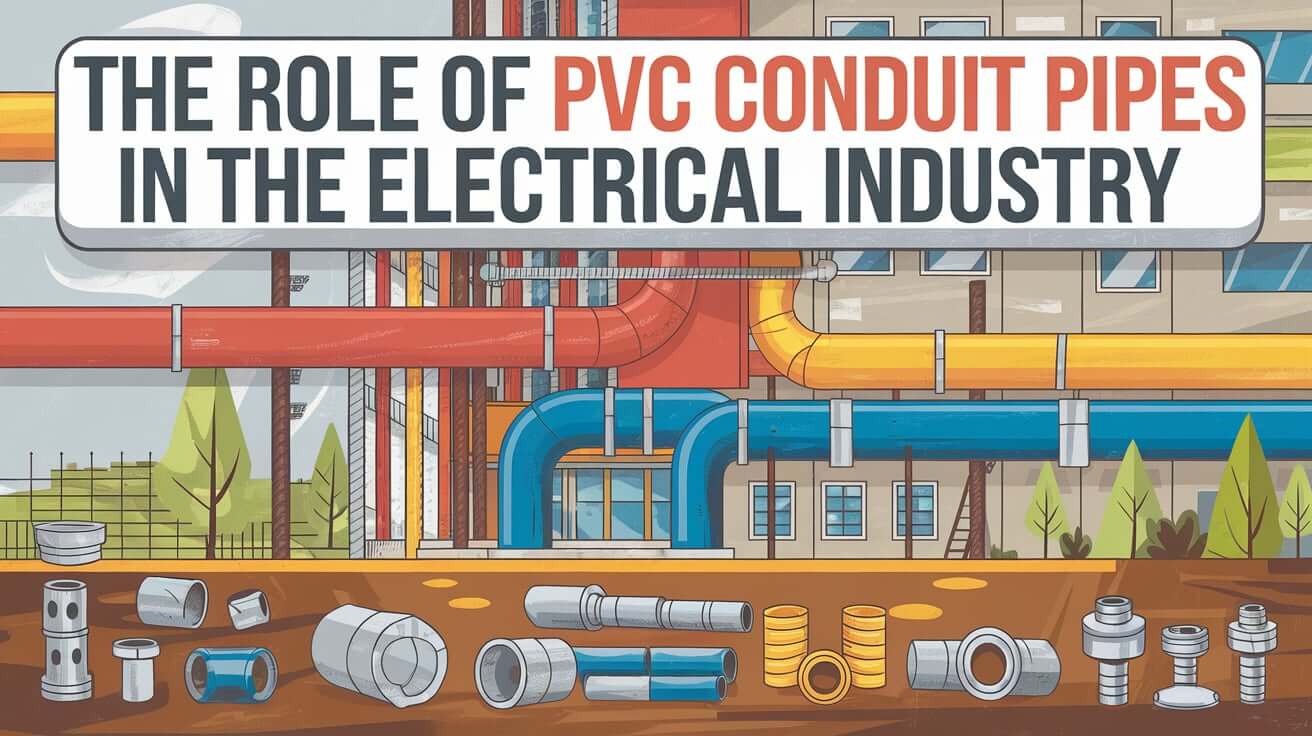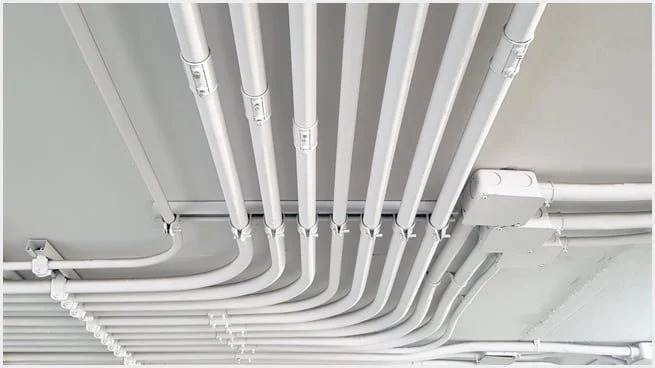Tubos de conducto de PVC Los conductos de PVC son un componente esencial de las instalaciones eléctricas, ya que brindan protección a los cables eléctricos y, al mismo tiempo, permiten su fácil instalación en edificios y estructuras. Con la creciente demanda de electricidad en la sociedad moderna, no se puede exagerar la importancia de los conductos para garantizar un cableado eléctrico seguro y eficiente. En este artículo, exploraremos el papel de los conductos de PVC en la industria eléctrica, incluidas sus ventajas, tipos, aplicaciones, instalación y mantenimiento, y desarrollos futuros.
Ventajas de los conductos de PVC
Los conductos de PVC ofrecen varias ventajas con respecto a otros materiales utilizados en instalaciones eléctricas. En primer lugar, son muy duraderos y resistentes, con la capacidad de soportar fuertes impactos sin agrietarse ni romperse. También son resistentes a la corrosión y a los productos químicos, lo que los hace ideales para su uso en entornos hostiles. En segundo lugar, los conductos de PVC son livianos y fáciles de instalar, lo que puede ahorrar tiempo y dinero durante la instalación. Por último, son rentables, lo que los convierte en una opción popular tanto para instalaciones eléctricas residenciales como comerciales.
Tipos de tuberías de PVC
Existen varios tipos de conductos de PVC, cada uno con sus propias propiedades y aplicaciones únicas. Los conductos de PVC rígidos son el tipo más común y se utilizan a menudo en instalaciones residenciales y comerciales. Están disponibles en una variedad de tamaños y se utilizan normalmente para instalaciones expuestas o montadas en superficie. Los conductos de PVC flexibles son otro tipo, que son ideales para instalaciones que requieren flexibilidad o movimiento. Se utilizan a menudo en espacios reducidos o donde hay vibraciones. Por último, los conductos recubiertos de PVC son un tipo de conducto rígido de PVC que está recubierto con una capa adicional de PVC para una mayor protección contra la corrosión y la abrasión.
Aplicaciones de los conductos de PVC en la industria eléctrica
La principal aplicación de los conductos de PVC es la protección de cables y alambres eléctricos contra daños físicos y exposición al medio ambiente. También se utilizan para enrutar cables eléctricos en edificios y estructuras, lo que permite una fácil instalación y mantenimiento. Los conductos de PVC se utilizan comúnmente en instalaciones subterráneas y al aire libre debido a su resistencia a la corrosión y a la radiación UV. Además, deben utilizarse de acuerdo con los códigos y regulaciones eléctricos, lo que garantiza instalaciones eléctricas seguras y eficientes.
Instalación y Mantenimiento de Tuberías de Conducto de PVC
La instalación correcta de los conductos de PVC es fundamental para garantizar su eficacia y longevidad. Las pautas para una instalación adecuada incluyen el uso de los accesorios correctos, asegurarse de que el conducto esté bien sujeto y evitar curvas o esquinas pronunciadas. El mantenimiento adecuado también es importante para garantizar que las tuberías sigan funcionando correctamente con el tiempo. Esto incluye inspeccionar periódicamente las tuberías para detectar daños o desgaste, limpiarlas según sea necesario y realizar las reparaciones o reemplazos necesarios.
Futuros avances en tuberías de PVC
Como ocurre con todas las industrias, la industria eléctrica está en constante evolución e innovación. En el caso de las tuberías de PVC, los desarrollos futuros pueden incluir el uso de nuevos materiales, como plásticos de origen biológico o materiales reciclados, para que sean más sostenibles y respetuosas con el medio ambiente. Las tendencias y tecnologías emergentes en instalaciones eléctricas, como el uso de dispositivos inteligentes y fuentes de energía renovables, también pueden tener implicaciones para el papel de las tuberías de PVC en el futuro.
Los conductos de PVC desempeñan un papel fundamental en la industria eléctrica, ya que proporcionan protección y enrutamiento para cables eléctricos en una amplia variedad de instalaciones. Su durabilidad, resistencia a la corrosión y a los productos químicos y su relación calidad-precio los convierten en una opción atractiva tanto para aplicaciones residenciales como comerciales. Con la evolución continua de la industria eléctrica, será interesante ver cómo los conductos de PVC siguen adaptándose y evolucionando para satisfacer las necesidades cambiantes de la industria.











